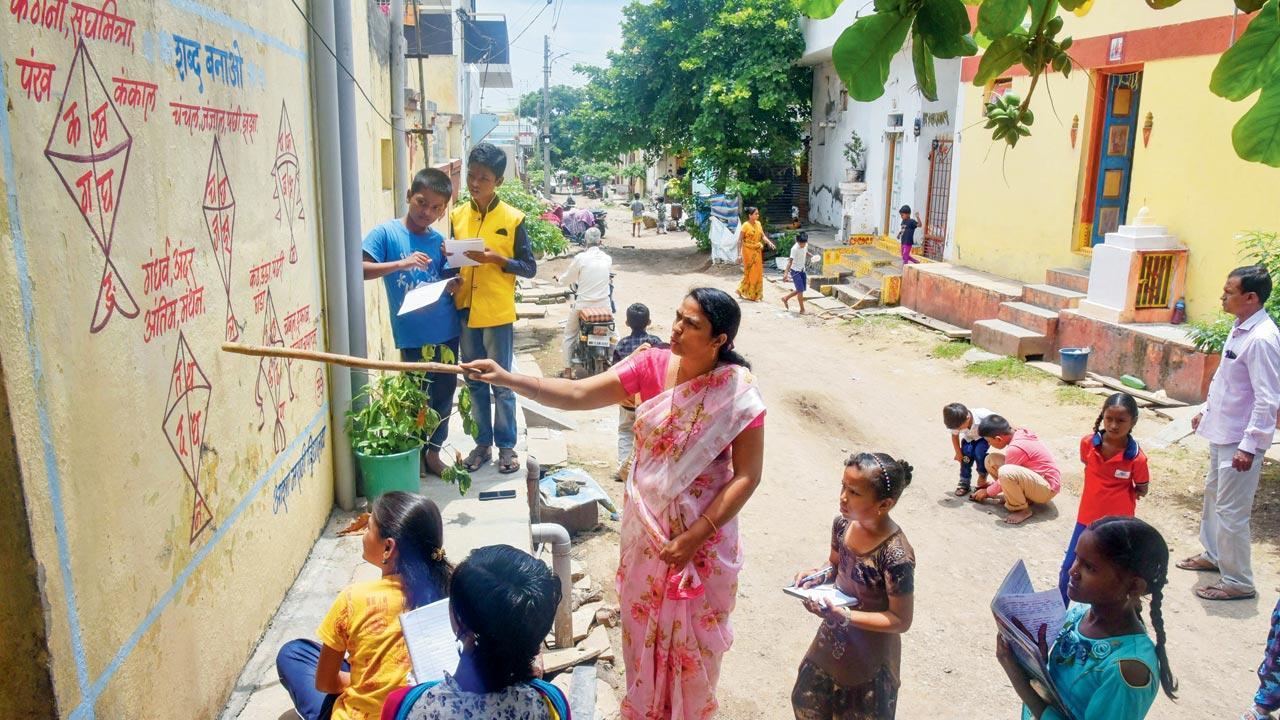As per Lancet Commission’s India Task Force, only 24 per cent of Indian households have access to the internet; calls for collaborations between wealthier and economically weaker sections

Online learning is still a much distant dream for lakhs of children in the country. Pic/AFP
India needs to make “Right to Technology” as a part of “Right to Education” to bridge the digital divide across income groups, The Lancet Covid-19 Commission has said.
ADVERTISEMENT
In a report on the impact of the pandemic on the education impact in the county, the global agency’s 23-member India Task Force said that even as online schooling was brought in to ensure uninterrupted learning, it is still a distant dream for scores with none or limited access.
Referring to several surveys and research reports on access to online learning in India, the task force has stressed the need for inclusion of Right to Technology in Right to Education. The report also suggests setting-up of state-level committees to determine the need for financial rescue packages for private schools.
Only 24 per cent of Indian households have access to the internet, while it is just over 15 per cent in rural areas and about 42 per cent in urban pockets, says the report. Of the poorest households, only 2.7 per cent have access to a computer and 8.9 per cent to the internet.
“Further, only 8 per cent of households with members aged between 5 and 24 have both access to internet connectivity and digital devices, creating overnight, a learning schism that has lasted much of the academic year. Even at the institutional level, around 1.2 million government and 400,000 private budget schools are not equipped, monetarily and infrastructure-wise, to provide technology-based learning to children,” says the report.
Citing Pratham’s Annual State of Education Report, it says a mere 11 per cent of students in private and government schools countrywide joined online classes and 21.5 per cent accessed one-way video recorded classes. The report also suggests collaborations between wealthier and economically weaker sections to ensure continuous learning by sharing devices and other required accesses.
“Bridge the digital divide on a priority basis through a combination of actions, including, but not restricted to improving access to internet connectivity and devices to the poorest children in the system; finding inventive ways of partnering children from wealthier backgrounds and those from poorer backgrounds to share devices and to encourage peer-to-peer learning; and including the right to technology as part of the Right to Education,” reads the 16-pages report. The task force includes Sandeep Juneja of Tata Institute of Fundamental Research and Daksha Shah, deputy director of BMC, from Mumbai.
12 lakh
No. of schools not equipped for e-classes
 Subscribe today by clicking the link and stay updated with the latest news!" Click here!
Subscribe today by clicking the link and stay updated with the latest news!" Click here!






